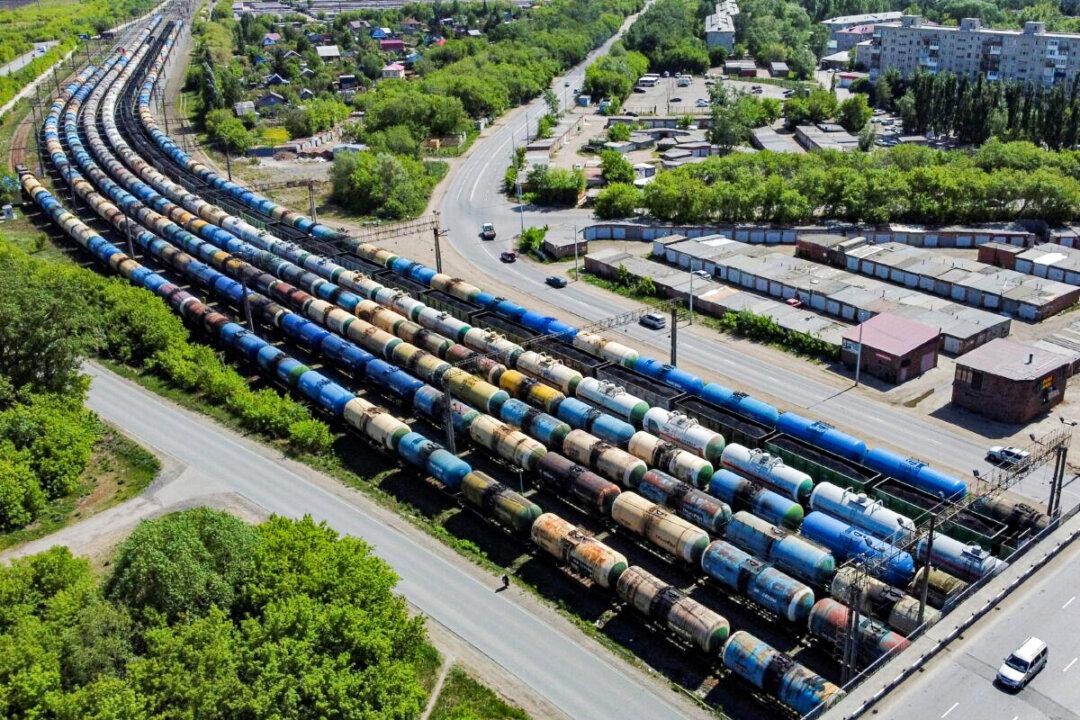LONDON—Oil prices rose on Monday as investors assessed efforts by authorities to rein in concerns over the global banking system while Russian President Vladimir Putin’s plans to place tactical nuclear weapons in Belarus ratcheted up tensions in Europe.
Brent crude futures were up 30 cents, or 0.4 percent, to $75.29 a barrel at 0900 GMT. West Texas Intermediate U.S. crude was up 28 cents, or 0.4 percent at $69.54 a barrel.





